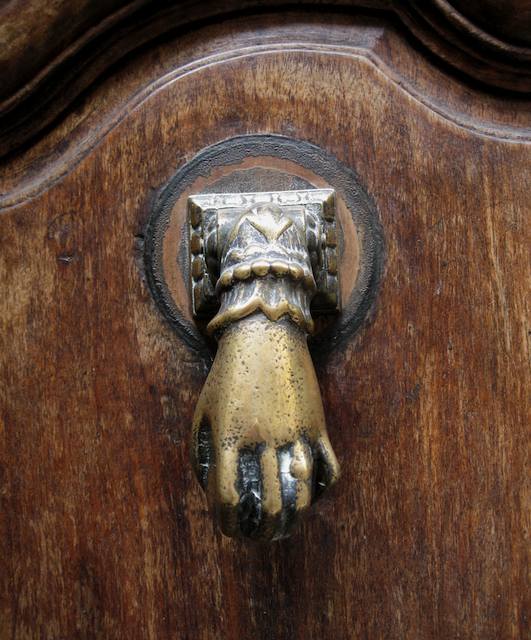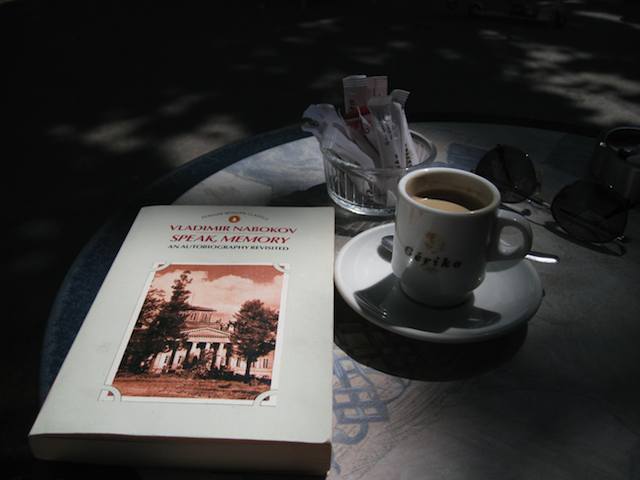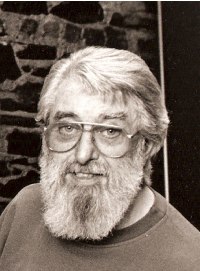
A Provencal door-knocker.


A Provencal door-knocker.

You know the theory that workaholics are the way they are because, deep down, they’re lazy? Well, I think it’s true. Since arriving in Provence I’ve done, well… precisely nothing except sit around, read, go to cafes and swim. True, I did tackle the cliff path yesterday, but that was mainly to get to the village without using the car. And even then I spent a few hours sitting around, people-watching and reading. And taking the odd photograph, as of this lovely little chap enjoying a fountain.

My conclusion? The worst thing that could happen to me would be winning the Lottery.
Using Photographs to Enhance Videos of a Static Scene from pro on Vimeo.
Useful. And scary: it used to be more difficult to doctor video sequences than still photographs.

Ronnie Drew, the lead singer (and co-founder) of The Dubliners, has died at the age of 73. He was an iconic figure in my youth, with a voice that was once memorably described as “the mating call of a rusty file”. His rheumy eyes, rude lyrics and wicked expression always suggested that he was a rogue, but I have a suspicion that he was a very nice man underneath all that. He was much loved in Ireland (both the President and the Taoiseach issued tributes yesterday) and will have one hell of a funeral. I’d go if I were in Ireland.
… in 1977, Elvis Presley died at Graceland at the ripe old age of 42.
The only reason I ever run Windows is because I sometimes use Dragon Naturally Speaking, the only dictation software I’ve used which does what it says on the tin. I was therefore touched to find this ingenious application of the software described in a message to David Pogue and reproduced in his New York Times column.
My wife and I discovered Dragon NaturallySpeaking about 8 years ago, and have been using it successfully ever since– not for dictation, but as a communication aid. My wife is deaf; her hearing loss began about 25 years ago (we are in our late 60’s) and she has become a skillful lip reader to compensate. That works pretty well in face-to-face communication, but is not helpful in many other situations, such as when we are driving; when I drive, I give her a side view, which isn’t clear enough.
I’ve made brackets to hold a laptop both in our car and motor home. I use a lapel mike to speak; NaturallySpeaking transcribes what I say. She reads what I’m saying, and then responds by voice. When we got this working, it was the first time in 15 years that we could converse on the road. We are now using version 9, having upgraded several times, and based on your report, we will watch for version 11!
Fascinating peek into the infighting and backbiting of Clinton’s failed campaign.
From the New York Times…
SAN FRANCISCO — A legal dispute involving model railroad hobbyists has resulted in a major courtroom victory for the free software movement also known as open-source software.
In a ruling Wednesday, the federal appeals court in Washington said that just because a software programmer gave his work away did not mean it could not be protected.
The decision legitimizes the use of commercial contracts for the distribution of computer software and digital artistic works for the public good. The court ruling also bolsters the open-source movement by easing the concerns of large organizations about relying on free software from hobbyists and hackers who have freely contributed time and energy without pay.
It also has implications for the Creative Commons license, a framework for modifying and sharing creative works that was developed in 2002 by Larry Lessig, a law professor at Stanford.
That license is now used widely by organizations like M.I.T. for distributing courseware, and Wikipedia, the Web-based encyclopedia. In March, the rock band Nine Inch Nails released a collection of musical tracks under a Creative Commons license.
The ambiguity facing open-source licensing has been one of the hurdles facing the movement, said Joichi Ito, the chief executive of Creative Commons.
“From a practical business perspective when big companies and their legal teams look at Creative Commons there are a number of questions,” he said. “It’s been one of the things their legal teams throw at us.”

Other pictures here.
Strange but true: one of the things we learned on the Ndiyo Project from our project in Bangladesh is that the people who may have most to gain from electronic banking are the rural poor of the developing world. David Talbot has an interesting post in Tech Review which illustrates this.
Kasaghatta, India: It’s a 90-minute walk from this southern Indian village–one of 730,000 in India–to Doddabenavengala, the nearest town with a bank branch. Until a few months ago, Karehanumaiah, a 55-year-old agricultural laborer, had no bank account, which also meant he had no access to formal credit. (He would have to pay 10 percent monthly interest to informal lenders to, say, borrow $45 to buy a goat.) But that all changed in recent months…
Video here.